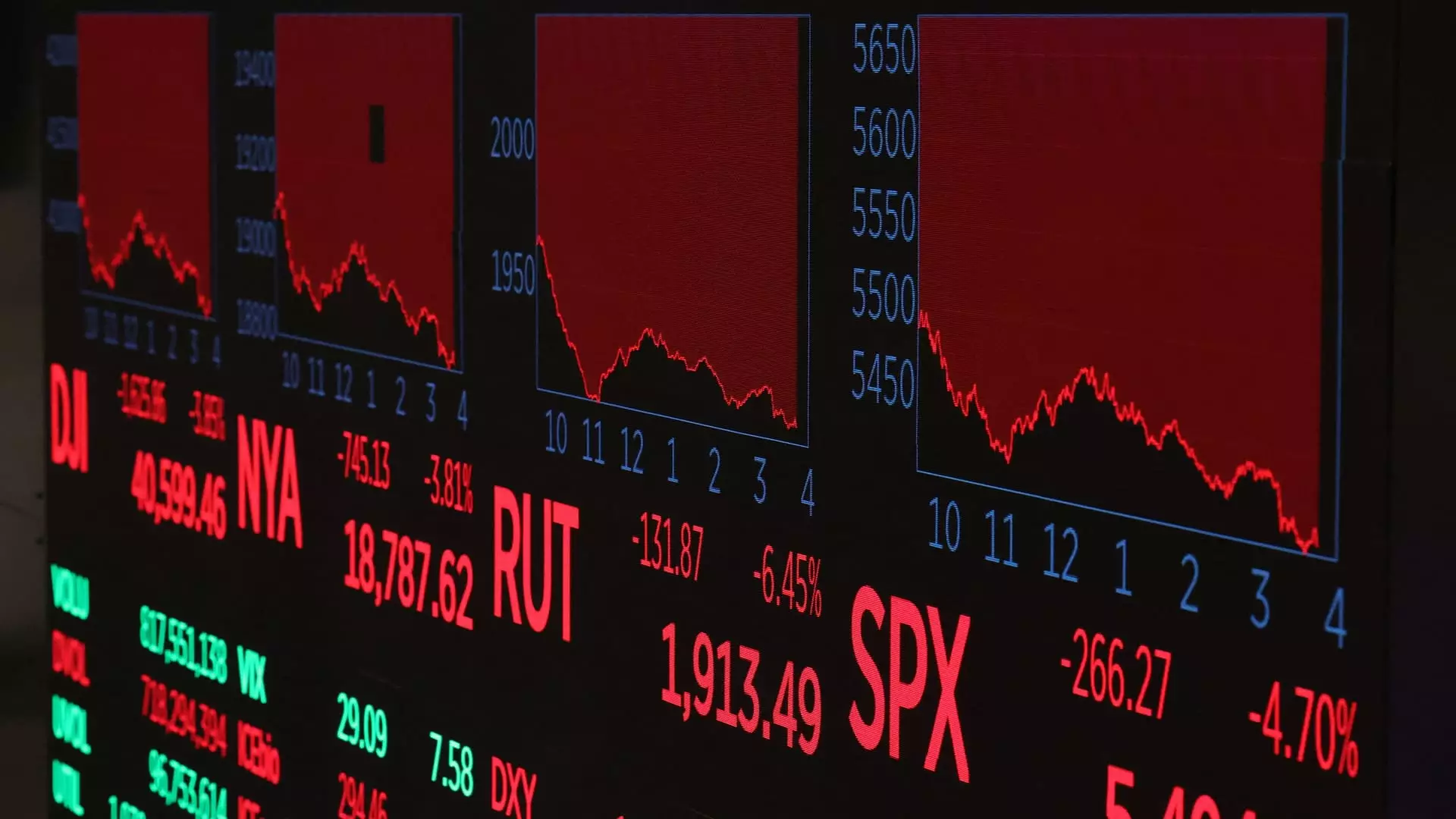In today’s turbulent economic landscape, the stock market’s volatility has sent shivers down the spine of seasoned investors and novices alike. As the headlines buzz with news of potential recessions and fluctuating tariffs under President Trump’s administration, a curious phenomenon emerges: a surge of retail investors entering the fray, undeterred by looming uncertainty. This bold behavior raises questions not only about the efficacy of traditional investment wisdom but also about the future landscape of retail trading.
The Philosophy of “Buying the Dip”
At the heart of this investing trend lies the psyche referred to as “buying the dip.” The phrase, once limited to savvy stock market strategists, has now found its way into the vernacular of everyday investors like Rachel Hazit, who view market downturns as golden opportunities. The essence is simple: when stocks decline, they can be perceived as discounted commodities. Yet, while this approach has garnered success during prior recovery periods, the market’s current backdrop is fraught with greater risks, leaving many to ponder whether history will repeat itself positively.
Self-directed retail investors collectively invested a staggering $8.8 billion during a highly volatile week, as recorded by Vanda Research, which suggests this group is demonstrating a newfound resilience. But is this behavior reckless exuberance, or are these retail players tapping into a shift in stock market dynamics that institutional investors are missing? The latter seems increasingly plausible, as the retail segment exhibits a surprising confidence that stands in stark contrast to the bearish attitudes of Wall Street.
The Role of Market Fear and Emotion
Market fear has often driven investment decisions, prompting even the most seasoned players to retreat to the sidelines during downturns. Yet, paradoxically, the emotional element may play into the strength of retail investors today. The previously mentioned dip-buying strategy signals a profound understanding of market cycles and the innate ability to remain steadfast amidst uncertainty. It’s no longer just about investing money; it’s about building wealth through psychological resilience.
Investors like Namaan Mian, who have been through financial maelstroms in the past, rely on long-term strategies that help detach emotions from decisions, leading them to purchase broad market indexes like the Vanguard S&P 500 ETF. That shift in mentality is not without merit; history shows that significant gains can often lie just beyond periods of sharp decline. However, let’s not overlook the inherent gamble: the possibility that today’s chaos could lead to a more protracted downturn, thus testing the mettle of these individual players.
The Influence of Social Media and Retail Trading Communities
Today’s retail investor is not navigating the market alone; they are aided by informational platforms and social media forums dedicated to investing insights. Influencers advocating for stock purchases and discussing market strategies broaden their reach beyond traditional financial advisories. Figures like Tori Dunlap inspire their followers with the mantra that “millionaires are made during market downturns.” The accessibility to this kind of encouragement illustrates how social influence has become a powerful tool in retail trading, allowing individuals to galvanize teams of investors urging action instead of paralysis.
Yet this newfound camaraderie may come at a price. The simplicity of retweeting stock tips or following influencer recommendations may compel inexperienced investors to act without fully understanding the market dynamics at play. The emotional high that comes with being part of the buzz can lead to impulsive decisions, translating into real financial consequences. Retail investors should tread carefully but boldly—a fine balancing act between informed action and blind enthusiasm.
The Stability of Long-Term Investment Strategies
Despite the allure of immediate gains through rapid trading, the strategy of investing for the long term remains a prevailing theme among savvy investors today. Those like Hazit articulate a measured approach, opting to acquire stocks incrementally while being aware of macroeconomic factors. This careful maneuvering lays the groundwork for stability amidst potential market upheavals.
Instead of being swept away by the waves of economic news—be it tariffs or speculation on recession—investors better served by their portfolios allocate funds methodically into diversified ETFs that sustain their positions through time. With strategies adapted to focus on resilience, these forward-thinking individuals circumvent friction with the market’s inherent unpredictability.
A Cautionary Outlook Amidst Optimism
Though optimism breathes vibrancy into the markets, narratives steeped in potential recession evoke an urgent caution. While the recent influx of retail investors is undeniably refreshing to the stock market atmosphere, it is imperative to note that these trends come with risks. For every retail investor celebrating new gains from well-timed trades, there may be another grappling with an economic landscape that threatens personal stability.
The dynamics of today’s stock market demand an awareness that extends beyond just individual stock performance. With economic policies, consumer confidence, and inflation concerns swirling around like ominous clouds, a prudent approach in a reckless world may be the smartest path forward. As everyday investors strive to create wealth, maintaining a judicious mindset—perhaps even channeling skepticism—might be their key to thriving in an uncertain future.

